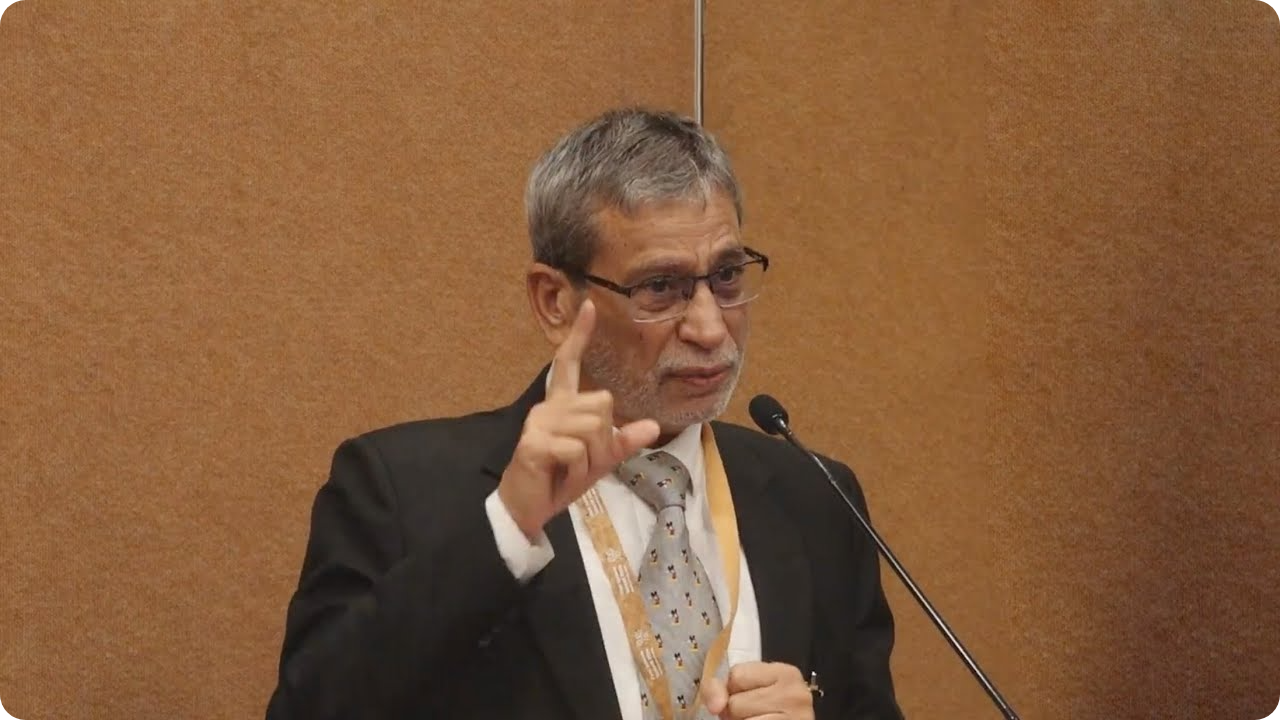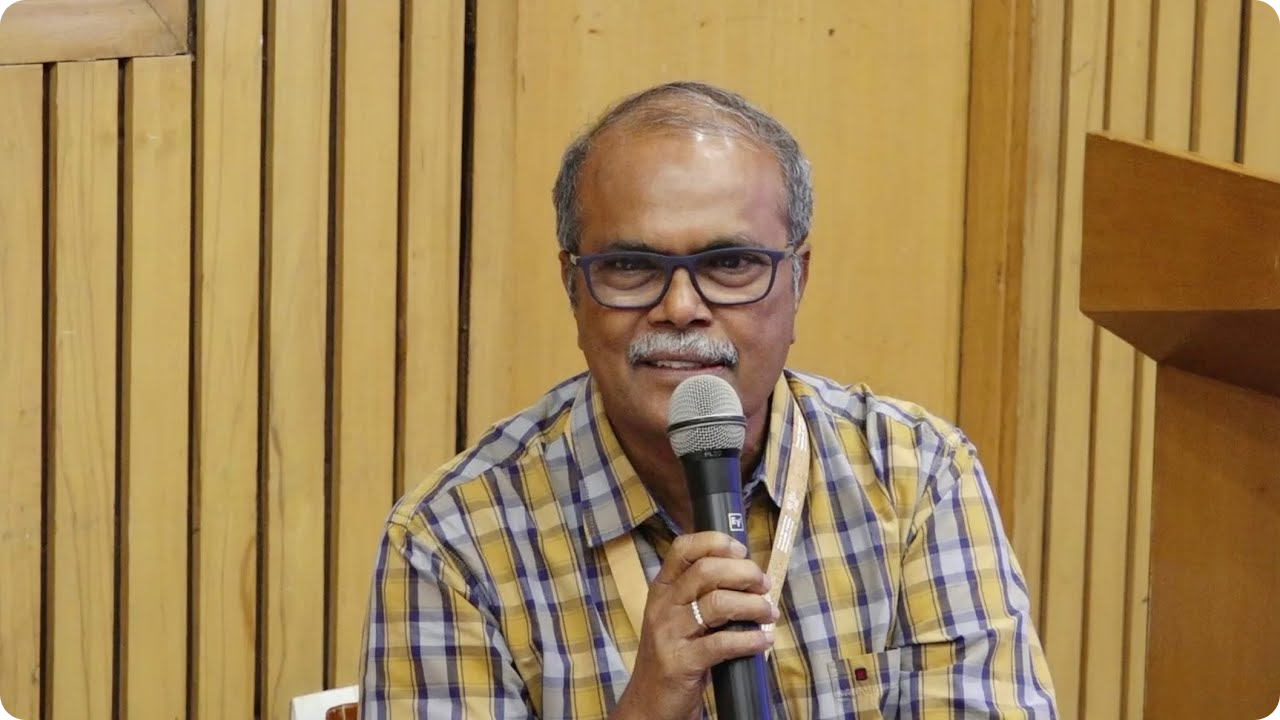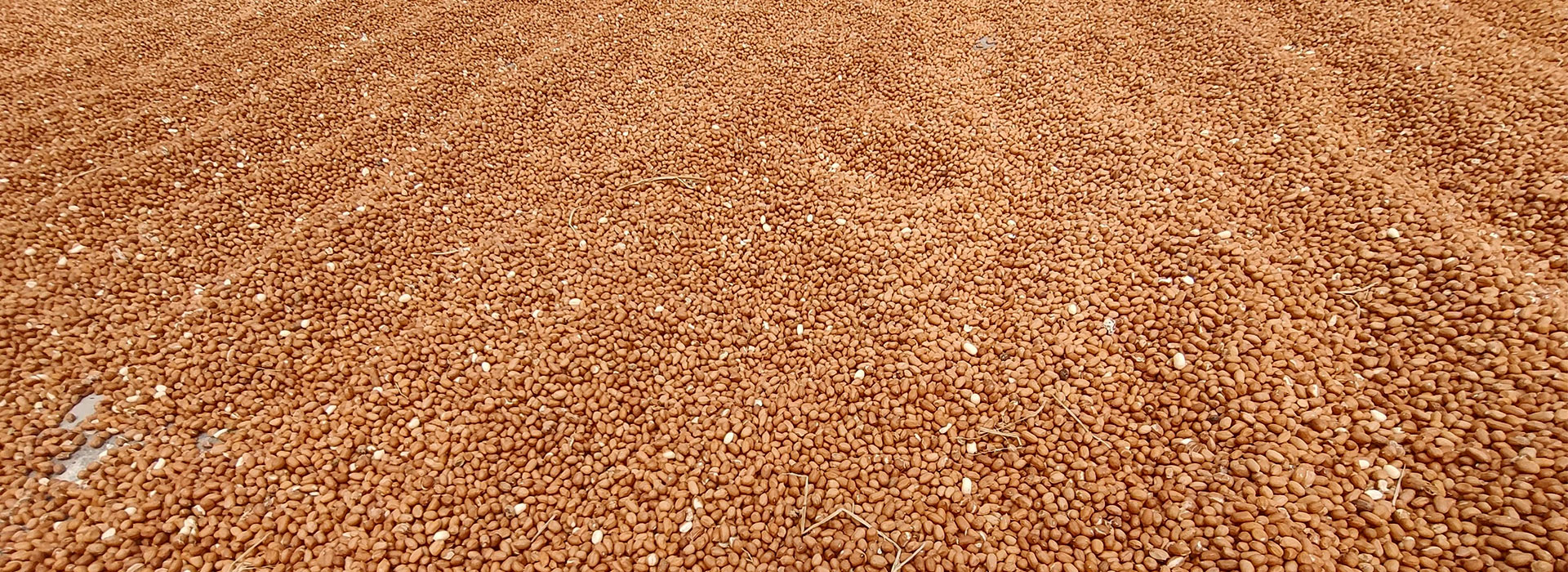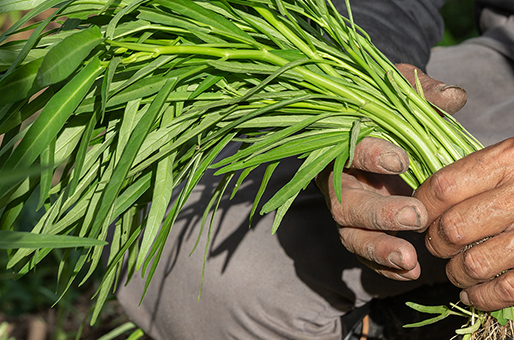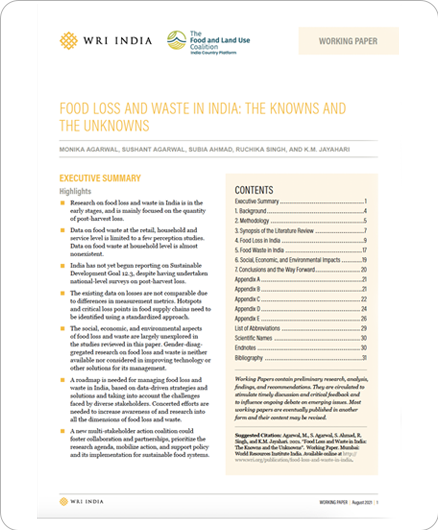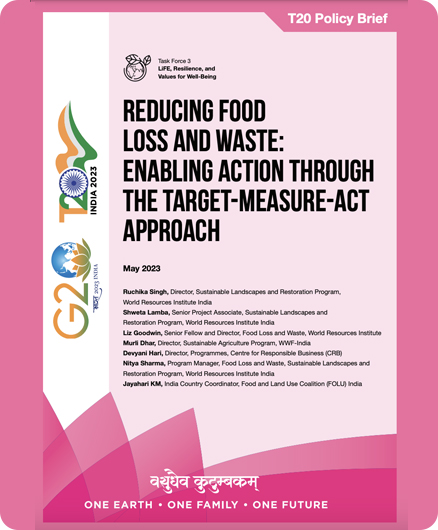Reducing food loss and food waste presents an opportunity to address multiple issues associated with food systems. This includes food security, carbon emissions and stakeholders’ incomes along the value chain. While several government schemes and policies in India focus on strengthening post-harvest management of crops to tackle food loss, far more attention is needed on food waste. The challenge of reducing food loss and waste requires ambitious action by multiple stakeholders along the supply chain. From producers to consumers. It calls for context-specific interventions that are implemented at policy, infrastructural, capacity building, technological and behavioural level.
Linked to the concept of food loss and food waste is a newly emerging concept, especially in the context of developing countries – that of nutrition loss and nutrition waste. Nutrition loss occurs due to the improper handling, storage and processing of food and agricultural commodities. Nutrition waste occurs primarily due to malabsorption of nutrients because of gastroenteric diseases resulting from poor hygiene. While nutrition nutrition loss needs to address through infrastructural advancements and improvements along the supply chain, nutrition waste needs to be addressed through public health and social measures like Water and Sanitation Hygiene (WASH).
It is therefore vital to analyse the existing knowledge and practices in this sector to develop the course of action necessary to combat food loss and waste. Through its core partners, FOLU India works with public and private sector to inspire collective action towards strengthening food and nutrition security.
Know more about our projects below to learn about our collaborative approach towards reducing food loss and food waste and how we are making an impact.
